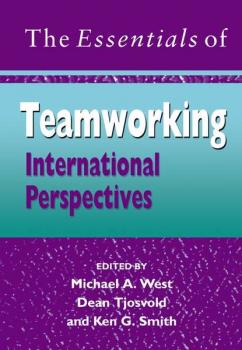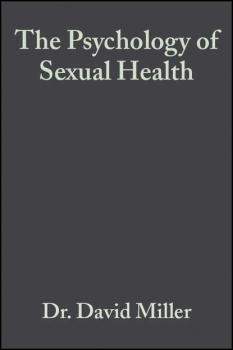Общая психология
Различные книги в жанре Общая психологияThe Psychopharmacology Treatment Planner
The Psychopharmacology Treatment Planner provides all the elements necessary to quickly and easily develop formal treatment plans that satisfy the demands of HMOs, managed care companies, third-party payors, and state and federal review agencies. Saves you hours of time-consuming paperwork, yet offers the freedom to develop customized treatment plans for clients whose therapy includes psychotropic drugs Organized around 28 main presenting problems regularly treated with a combination of psychotropic and psychotherapeutic interventions or treatment modalities, from ADHD, dementia, and substance abuse to antisocial behavior, bipolar disorders, and more Over 1,000 well-crafted, clear statements describe the behavioral manifestations of each relational problem, long-term goals, short-term objectives, and clinically tested treatment options Easy-to-use reference format helps locate treatment plan components by behavioral problem or DSM-IV-TR(TM) diagnosis Includes a sample treatment plan that conforms to the requirements of most third-party payors and accrediting agencies (including HCFA, JCAHO, and NCQA)
The Zen of Helping
Bring compassion, self-awareness, radical acceptance, practitioner presence, and caring to the relationships you have with you patients by utilizing the advice in The Zen of Helping: Spiritual Principles for Mindful and Open-Hearted Practice. As a mental health professional, you will appreciate the vivid metaphors, case examples, personal anecdotes, quotes and poems in this book and use them as a spiritual foundation for your professional practice. Connect Zen Buddhism with your human service and address issues like dealing with your own responses to your client’s trauma and pain.
Thinking in Cases
What exactly is involved in using particular case histories to think systematically about social, psychological and historical processes? Can one move from a textured particularity, like that in Freud's famous cases, to a level of reliable generality? In this book, Forrester teases out the meanings of the psychoanalytic case, how to characterize it and account for it as a particular kind of writing. In so doing, he moves from psychoanalysis to the law and medicine, to philosophy and the constituents of science. Freud and Foucault jostle here with Thomas Kuhn, Ian Hacking and Robert Stoller, and Einstein and Freud's connection emerges as a case study of two icons in the general category of the Jewish Intellectual. While Forrester was particularly concerned with analysing the style of reasoning that was dominant in psychoanalysis and related disciplines, his path-breaking account of thinking in cases will be of great interest to scholars, students and professionals across a wide range of disciplines, from history, law and the social sciences to medicine, clinical practice and the therapies of the world.
Lacan on Love
Quintessentially fascinating, love intrigues and perplexes us, and drives much of what we do in life. As wary as we may be of its illusions and disappointments, many of us fall blindly into its traps and become ensnared time and again. Deliriously mad excitement turns to disenchantment, if not deadening repetition, and we wonder how we shall ever break out of this vicious cycle. Can psychoanalysis – with ample assistance from philosophers, poets, novelists, and songwriters – give us a new perspective on the wellsprings and course of love? Can it help us fathom how and why we are often looking for love in all the wrong places, and are fundamentally confused about “what love really is”? In this lively and wide-ranging exploration of love throughout the ages, Fink argues that it can. Taking within his compass a vast array of traditions – from Antiquity to the courtly love poets, Christian love, and Romanticism – and providing an in-depth examination of Freud and Lacan on love and libido, Fink unpacks Lacan’s paradoxical claim that “love is giving what you don’t have.” He shows how the emptiness or lack we feel within ourselves gets covered over or entwined in love, and how it is possible and indeed vital to give something to another that we feel we ourselves don’t have. This first-ever commentary on Lacan’s Seminar VIII, Transference, provides readers with a clear and systematic introduction to Lacan’s views on love. It will be of great value to students and scholars of psychology and of the humanities generally, and to analysts of all persuasions.
The Essentials of Clinical Health Psychology
This selection of carefully chosen chapters from the prestigious Handbook of Clinical Health Psychology focus on the more practical issues that are of particular relevance to the busy practitioner. It is a well-referenced but practical resource, which provides an authoritative, up-to-date guide to empirically validated psychological interventions in health care. Informative and practical: a guide to action An authoritative, critical and evidence based synthesis of knowledge that will guide best practice Easy-to-use format intended for practitioners who want to ensure their practice is state-of-the-art
An Introduction to Emotional Intelligence
Bridges the gap between the scholarly literature and “pop-psych” books on EI Emotional Intelligence (EI) has become a topic of vast and growing interest worldwide and is concerned with the ways in which we perceive, identify, understand, and manage emotions. It is an aspect of individual difference that can impact a number of important outcomes throughout a person’s lifespan. Yet, until now there were no authoritative books that bridge the gap between scholarly articles on the subject, often published in obscure professional journals, and the kind of books found in the “pop-psych” sections of most large bookstores. This book fills that gap, addressing the key issues from birth through to old age, including the impact of EI on child development, social relationships, the workplace, and health. It is a useful introduction to the academic study of EI, including its history as a concept. Featuring contributions by an international team of EI researchers, this thought provoking and informative book offers students, educators, mental health professionals, and general readers a comprehensive, critical, and accessible introduction to state-of-the-art EI theory and research. From the historical origins of EI to its contemporary applications across an array of domains, An Introduction to Emotional Intelligence explores what the research evidence tells us about it, why it is important, and how it is measured. Throughout each chapter any potentially tricky words or concepts are highlighted and explained. And, most chapters feature activities to spur further reflection on the subject matter covered as well as ideas on how to apply aspects of EI to various questions or problems arising in the readers’ lives. Features contributions from expert authors from around the world with experience of researching and teaching EI theory and practice Makes EI concepts, foundations, research, and theory accessible to a wider audience of readers than ever before Explores EI’s roots in psychological thinking dating back to early 20th century and considers the reasons for its widespread popularity in contemporary times Reviews the latest research into the constructs of ability EI and trait EI and their validity in relation to health, wellbeing, social relationships, academic, and work performance An Introduction to Emotional Intelligence is fascinating and informative reading and a source of practical insight for students of psychology, management and leadership, education, social work and healthcare, and those working in education, health settings and in psychological counseling professions.
The Essentials of Teamworking
The team, rather than the individual, is increasingly seen as the building block of organizations and a key source of competitive advantage. Despite this, not enough is understood about how to build successful teams in modern organizations. The Essentials of Teamworking broadens this understanding by offering a selection of key chapters on teamwork from the International Handbook of Organizational Teamwork and Cooperative Working. This concise paperback edition reveals the complexity of teamwork and offers empirically based guidance on how teamwork can be effectively developed in modern organizations. Bringing together leading international scholars, The Essentials of Teamworking offers challenging perspectives on teamwork that will inform future research and practice. It is an invaluable resource for professionals, researchers and students alike.
The Psychology of Sexual Health
There have been rapid developments in the psychological management of sexually transmitted diseases, particularly HIV and AIDS. However, a significant proportion of those attending genitourinary clinics do not have a disease or infection, but rather are seeking help with sexual health issues relating to behaviour, prior sexual experiences and relationships. Hence as clinics become more and more generalist there is a need to focus on behavioural aspects of disease. This is the first text to draw together the knowledge base and expertise of clinicians and researchers from all disciplines in the psychological management of sexual health. It presents advances in theory and practice in a practical way that will be accessible for all disciplines.
The Psychology of False Confessions
Provides a comprehensive and up-to-date review of the development of the science behind the psychology of false confessions Four decades ago, little was known or understood about false confessions and the reasons behind them. So much has changed since then due in part to the diligent work done by Gisli H. Gudjonsson. This eye-opening book by the Icelandic/British clinical forensic psychologist, who in the mid 1970s had worked as detective in Reykjavik, offers a complete and current analysis of how the study of the psychology of false confessions came about, including the relevant theories and empirical/experimental evidence base. It also provides a reflective review of the gradual development of the science and how it can be applied to real life cases. Based on Gudjonsson’s personal account of the biggest murder investigations in Iceland’s history, as well as other landmark cases, The Psychology of False Confessions: Forty Years of Science and Practice takes readers inside the minds of those who sit on both sides of the interrogation table to examine why confessions to crimes occur even when the confessor is innocent. Presented in three parts, the book covers how the science of studying false confessions emerged and grew to become a regular field of practice. It then goes deep into the investigation of the mid-1970s assumed murders of two men in Iceland and the people held responsible for them. It finishes with an in-depth psychological analysis of the confessions of the six people convicted. Written by an expert extensively involved in the development of the science and its application to real life cases Covers the most sensational murder cases in Iceland’s history Deep analysis of the ‘Reykjavik Confessions’ adds crucial evidence to understanding how and why coerced-internalized false confessions occur, and their detrimental and lasting effects on memory The Psychology of False Confessions: Forty Years of Science and Practice is an important source book for students, academics, criminologists, and clinical, forensic, and social psychologists and psychiatrists.
The Forensic Documentation Sourcebook
All of the requisite forms forensic psychologists need in one compact volume—a crucial time-saver for mental health professionals in today's complex legal system From child custody battles to competency hearings, the role of the psychologist in law is growing rapidly. Whether working in the legal context as an expert witness, evaluator, or consultant, it is necessary for the mental health professional to maintain a very high standard of documentation. This requires a detailed knowledge of a large amount of forms, as well as their correct preparation. Now fully updated and revised, The Forensic Documentation Sourcebook, Second Edition provides the most useful and current forms for accurate and comprehensive documentation and record keeping. These ready-to-use forms will save you and your practice hours that would otherwise be spent creating and collating them, freeing you to devote more energy to the important matters of the case you are working on. A companion CD includes all documents in Word format so you can customize them according to the unique needs of your practice. Covering every aspect of forensic mental health practice, this fully revised Second Edition also includes: Two new chapters containing more than twenty forms for family law consultation and neuropsychological assessment Completed copies of key forms illustrating the type of information required Clear, concise explanations of the purpose of each form-including when it should be used, with whom, and at what point in the examination









